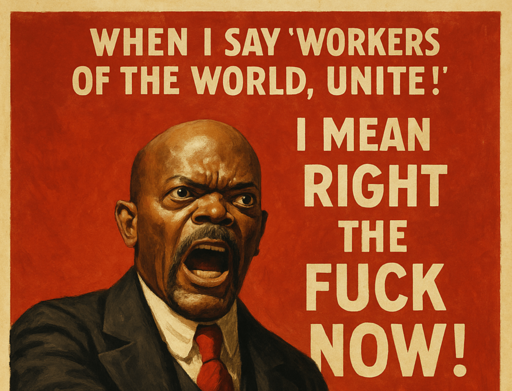

probably bringing back workhouses. I don’t have the list of stuff gates has been involved in rn but he has very eugenics-adjacent views, except his are more socially palatable. He’s huge into charter schools, wants to rethink the entire world system in his image, all the stuff he gets up to in africa, etc. and he’s in the epstein files asking epstein for antibiotics to slip his wife so she wouldn’t know he caught an STD from someone epstein provided him.










Westerners have a view of China that is 10-20 years in the past, or more. They thought only the US would be able to innovate in AI/neural networks with Europe contributing maybe 1% of it, as has been usual in the past. Then China comes along and not only do they provide similar state-of-the-art performances and innovations, they 2. provide more research (look at all the AI related papers being published on arxiv, >50% of them are Chinese) and 3. choose to work open-source/open-weight instead of proprietary.
Now overvalued companies like OpenAI can’t compete, so their second best shot is “but do you really want China to control AI? We should control AI, like we’ve controlled the world’s supply of new things for the past 100 years. Now give me 500 billion $$$”
AI is like the steam machine was in its time. The benefits of steam were not readily apparent, they needed the machines to be designed first to use steam, and the infrastructure to make use of that steam. But once they did, everything accelerated quickly. We are in the first 4 years of AI still, it hasn’t even been half a decade yet. At this stage, at the state-level, AI is considered almost existential. A country that had the steam machine simply outpaced anyone else in production, allowing imperialism at scale. You could out-produce commodities, out-outfit your army, out-manufacture weapons with the steam machine.
AI has that potential, whether it will reach it is another question but at this time it’s not a question of “I don’t like how it looks” or “it’s not really art” anymore. The US government is not interested in AI because it does slightly better customer support, it wants it for war and imperialism. Like focusing on the surface-level arguments of AI is just a distraction, there’s so much more at stake here than our social media experience. Any attempt to “fight back” against it will just put it in the hands of the state and remove it from our hands. Refusal to use it or learn how to use it is self-defeating, as it once again only puts it in the hands of the bourgeoisie and the reactionaries. Do we want to win or do we just want to have good optics? And while we congratulate ourselves on having chased “AI slop” out of whatever big conglomerate social media platform, Raytheon will happily make AI enhanced missiles, unbothered.
Meanwhile China is using AI in education, agriculture, infrastructure and healthcare - which is not a coincidence at all, food especially, considering their history of famine in the country. Other Global South countries are following and developing AI too, though they are doing so slowly, and could benefit from Chinese models (and BRI infrastructure such as the chips required to run and train these models).
They’re scared. China has ~half an energy grid’s worth of reserve electricity produced at all times while we here don’t even know what solar panels are. A lot of people in Europe still have never seen a solar panel in their life, because we tariffed Chinese solar panels to ludicrous 300-1000% amounts so that people will be forced to buy overpriced shitty EU-made panels. And then they don’t buy these panels because they’re too expensive.
I suspect as China’s development with AI progresses we will see more of these arguments about somehow fighting against Chinese AI (as if that was somehow possible) while trying to leave US companies alone. All this talk they’re doing in the comments about China while not mentioned OpenAI or Anthropic is an example. And yes, it’s weird that there’s suddenly anti-China top-level comments out of nowhere, but there’s also a lot of communists that I’ve found on this cluster of subreddits.
https://en.prolewiki.org/wiki/Essay:Intellectual_property_in_the_times_of_AI